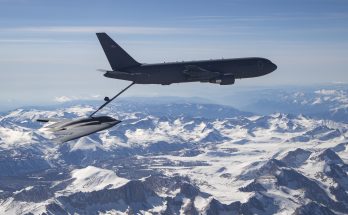by Bill Ostrove, International Military Markets Analyst, Forecast International.
Andrés Manuel López Obrador won a resounding victory in Mexico’s presidential elections held on June 30. With about two-thirds of the vote counted, López Obrador has over 20 million votes, or about 53.3 percent of the total. His next closest competitor, Ricardo Anaya Cortés, has only 22.5 percent, while José Antonio Meade Kuribreña of the ruling PRI Party has only 16 percent.
López Obrador ran with a populist message, vowing to rid Mexico of corruption, combat poverty, and stand up to U.S. President Donald Trump, who has had a more contentious relationship with Mexico than previous presidents.
This was the third time that López Obrador ran for office. In both 2006 and 2012, López Obrador lost to his more centrist opponents. However, in 2018, López Obrador was able to tap into the frustrations of the Mexican electorate.
Mexicans are disturbed by the corruption that has affected all levels of government. In many ways, the election results are a rebuke of the Institutional Revolutionary Party (PRI in Spanish), which is currently in power. President Enrique Peña Nieto, of the PRI, has been caught up in a scandal involving a lack of disclosures over property ownership. Governors in Peña Nieto’s party have been accused of embezzlement. This led to the worst voting result for the PRI since it was founded in the 1920s. López Obrador tapped into this frustration. Although he has not proposed any specific plans to reduce corruption, he has vowed to clean up government through his own example.
Mexicans are also frustrated over persistent poverty. Despite Mexico’s strong economic growth, more than half of Mexicans still live in poverty. López Obrador has promised to implement major public works projects, provide grants for college students, and double pensions for retired workers. At the same time, López Obrador has been conciliatory toward business. Despite his combative language in the past, López Obrador has promised to respect property ownership, the autonomy of institutions such as the central bank, and international agreements such as NAFTA.
He also promised to maintain stable government fiscal practices. Instead of increasing government budget deficits or taxes, López Obrador proposed to pay for his plans through savings that will accrue from reducing corruption and lowering the salaries and perks of top government officials.
Finally, López Obrador’s election can be seen as a response to U.S. President Donald Trump. Trump has been criticizing Mexico since he began campaigning for president of the U.S. While campaigning, Trump promised to build a wall between the U.S. and Mexico and force Mexico to pay for it. While in office, Trump has pressed Mexico and Canada to renegotiate the terms of the NAFTA agreement to make them more favorable to the U.S. Trump has also used language to describe Mexican immigrants that many in Mexico find offensive. While López Obrador has vowed to work with Trump, he has also promised to stand up to his American counterpart when necessary.
Going forward, it is not clear exactly what impact López Obrador will have on Mexico, particularly in terms of military posture and defense spending. He will likely attempt to distance Mexico’s foreign policy from that of the United States, although it is not clear how Mexico will align itself. In the past, Mexico was aligned with leftist Latin American nations. However, only Cuba and Venezuela could be considered in that camp at this point. Additionally, Mexico’s economy remains closely tied with the U.S. economy, meaning it would be difficult for the two countries to completely break apart diplomatically.
Mexico is also unlikely to drastically change its defense spending. Spending is unlikely to climb significantly as López Obrador implements his social spending policies. A decline is unlikely as well, considering the need to combat transnational criminal groups. Mexico’s defense budget can be expected to continue to grow at a steady rate going forward.
Author Bill Ostrove covers Latin America & Caribbean for Forecast International’s International Military Markets series, where he bringings a wealth of expertise on the political and economic forces shaping these markets. The IMM series examines the military capabilities, equipment requirements, and force structures inventories of 140 countries, with corresponding coverage of the political and economic trends shaping the defense outlook for these individual countries and regions.
For 50 years, Forecast International intelligence reports have been the aerospace and defense industry standard for accurate research, analysis, and projections. Our experienced analysts compile, evaluate, and present accurate data for decision makers. FI's market research reports offer concise analysis of individual programs and identify market opportunities. Each report includes a program overview, detailed statistics, recent developments and a competitive analysis, culminating in production forecasts spanning 10 or 15 years. Let our market intelligence reports be a key part of reducing uncertainties and mastering your specific market and its growth potential. Find out more at www.forecastinternational.com




